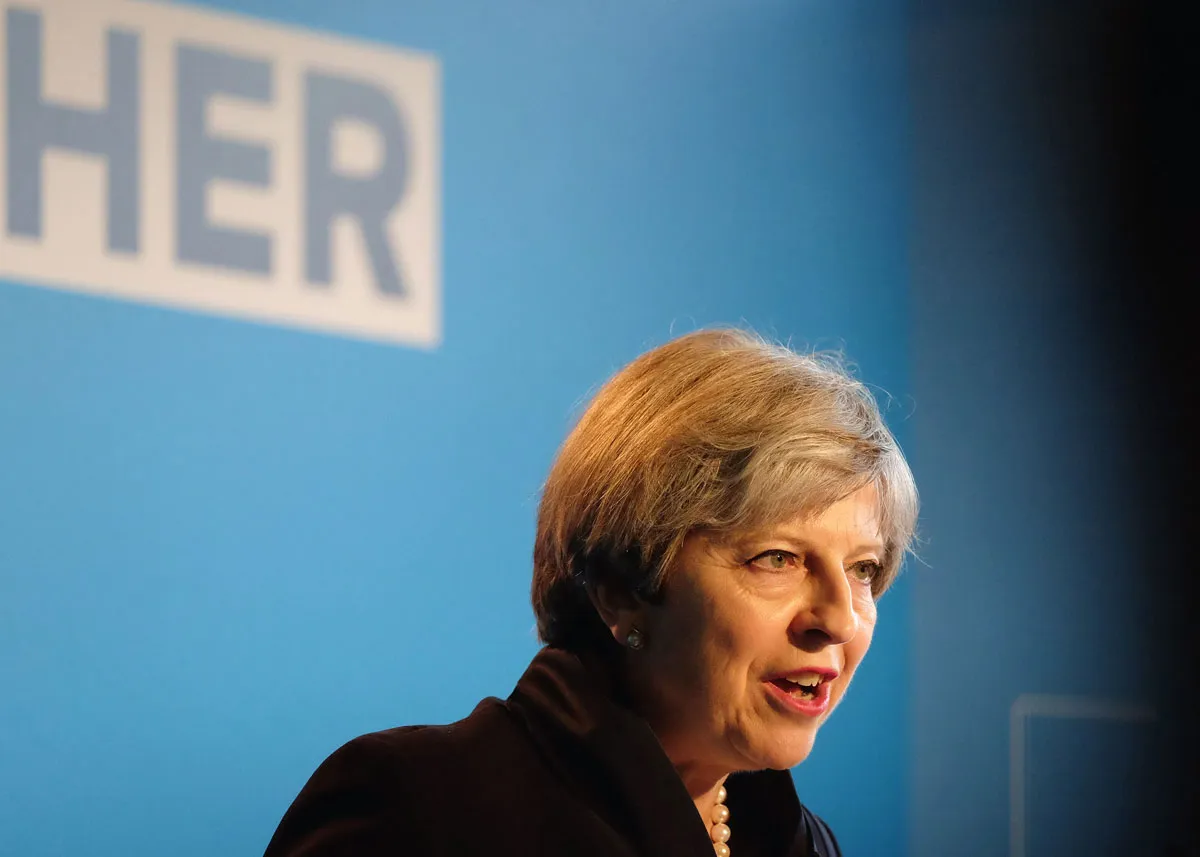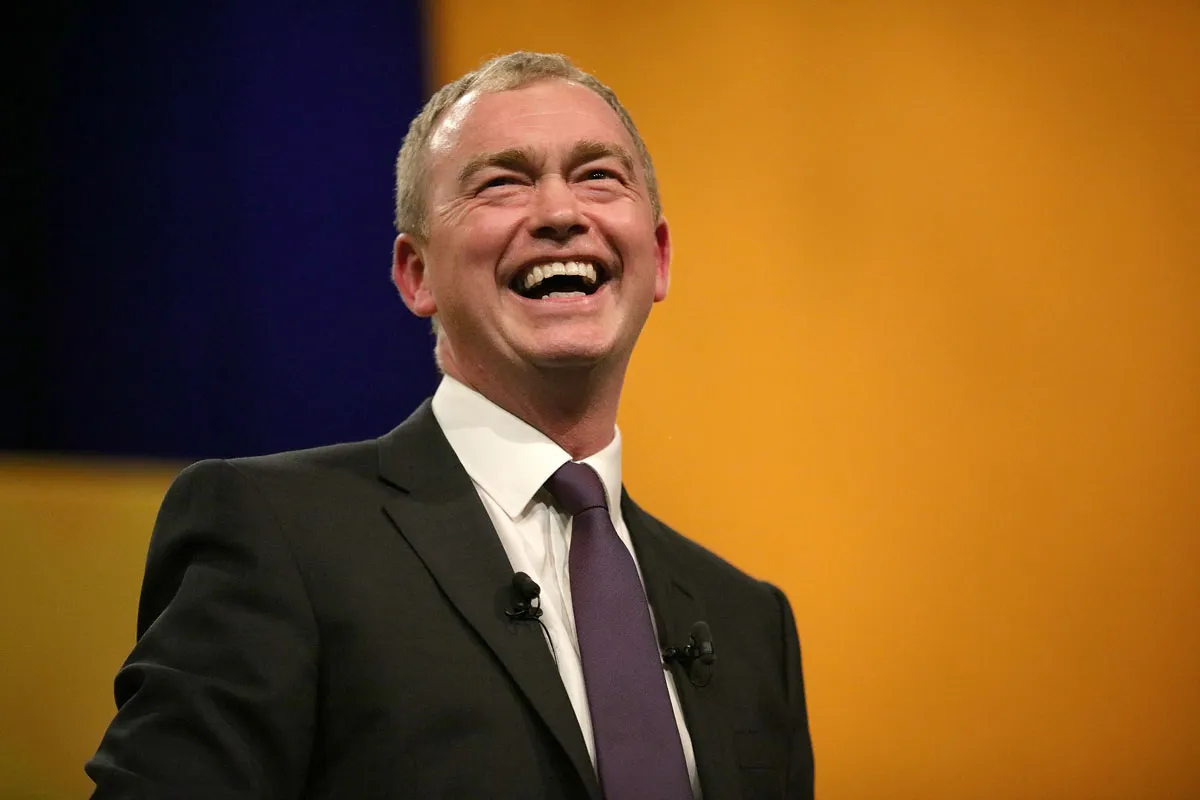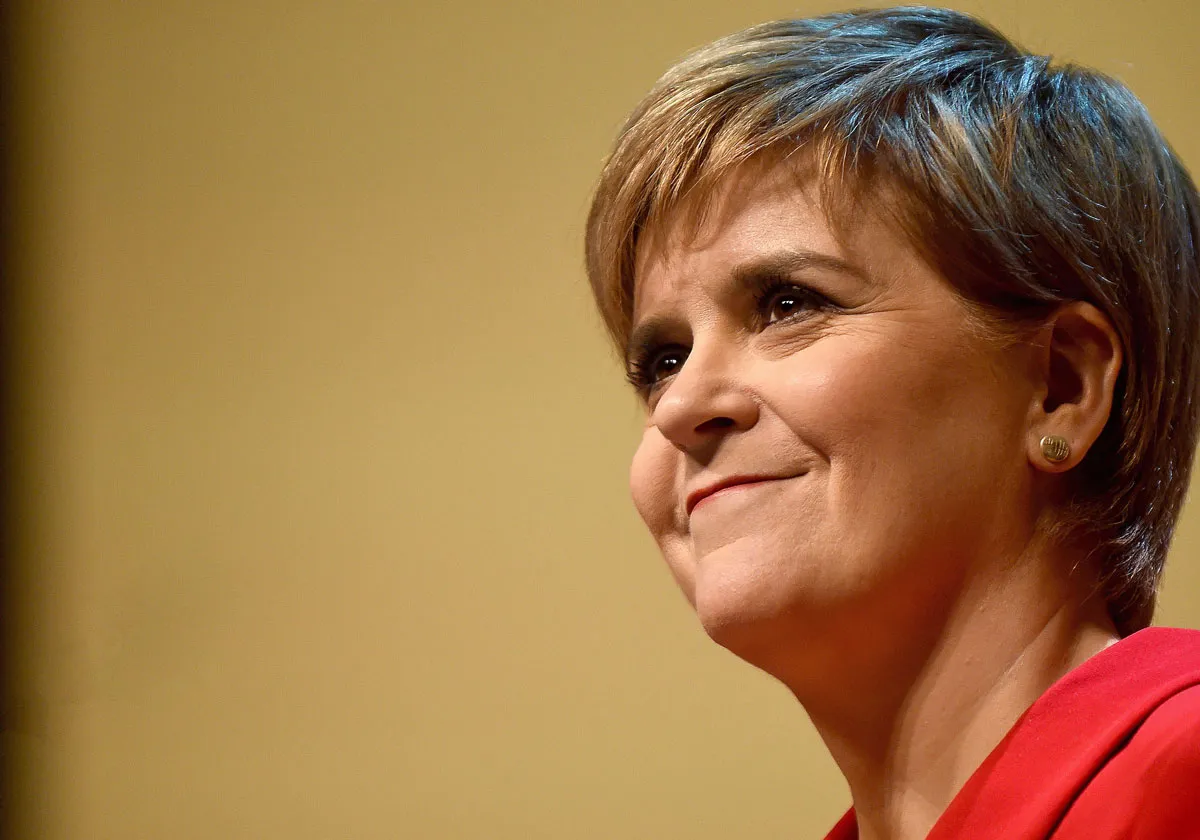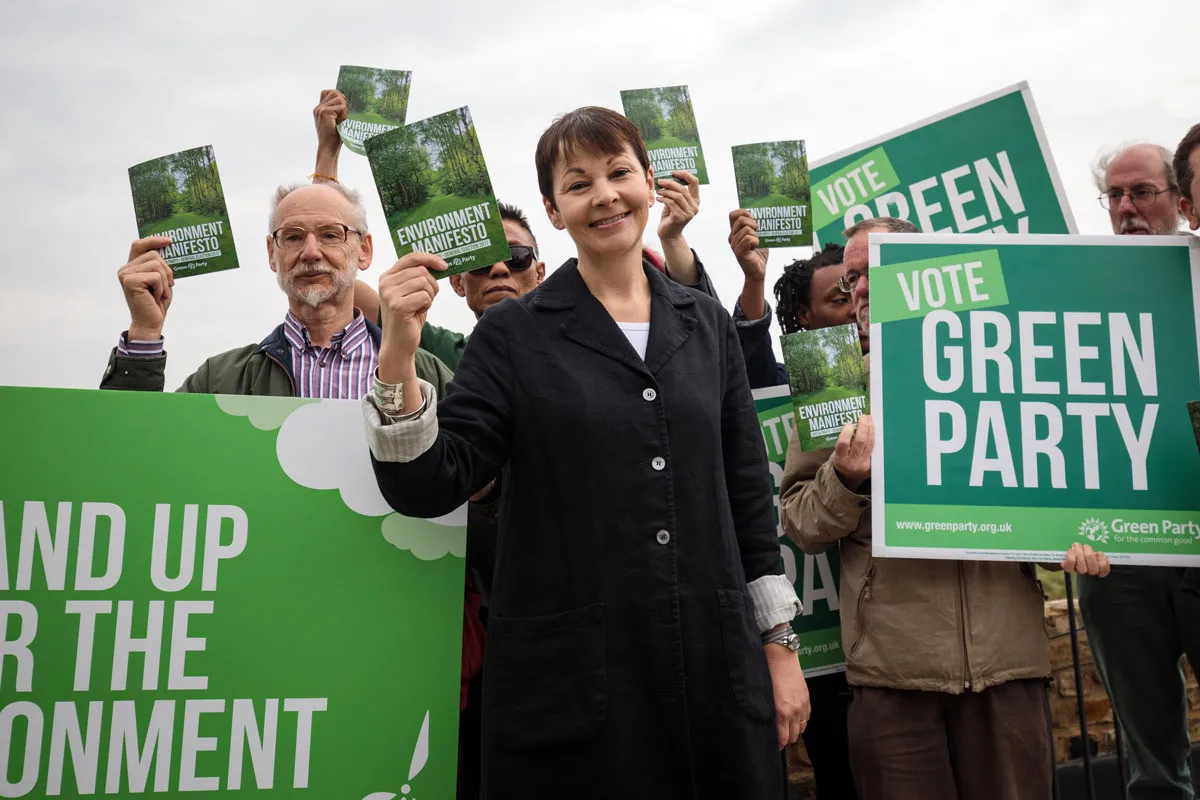Conservatives

The party pledges to represent 'the first generation to leave the environment in a better state than we inherited.' It will produce a comprehensive 25-year Environment Plan 'to chart how we improve our environment as we leave the European Union and take control of our environmental legislation again'.
Say they plan to develop the shale industry in Britain, that 'shale energy...could play a crucial role in rebalancing our economy.' Non-fracking drilling will be treated as permitted development but the manifesto says a greater percentage of the tax revenues from shale gas will directly benefit communities that host extraction sites.
The manifesto says it does not believe more large-scale wind power is right for England but 'will maintain our position as a global leader in offshore wind and support the development of wind projects in the remote islands of Scotland.'
The manifesto states the party's determination to 'grow more, sell more and export more great British food.'
The party says the Great Repeal Bill that transfers EU law into the UK will ensure that environmental protections...'will continue to be available in UK law'
On CAP, the party pledges to commit the same cash total in funds to support farming until the end of the next parliament. Following a wide consultation it will devise a new agri-environment scheme for the following parliament. The manifesto says the party 'will continue to ensure that public forests and woodland are kept in trust for the nation and provide stronger protections for our ancient woodland.'
On animal welfare, the manifesto promises to implement reforms on pets sales and licensing and make CCTV recordings in slaughterhouses mandatory.
The party says it will take steps to enhance the provision of public services in rural areas and support rural pharmacies and village schools: 'our ambition is that all routine small business and consumer banking services should be available in rural post offices.'
The party pledges to extend its coastal communities fund to 2022 to ensure that communities there 'enjoy the vitality and opportunity they deserve.'
On fishing, the manifesto pledges 'a new regime for commercial fishing that will preserve and increase fish stocks. It says the party will continue to 'work to conserve the marine environment of the coast of the United Kingdom.'
The manifesto pledges a free vote in parliament 'on the future of the Hunting Act'
The party 'will maintain existing strong protections on designated land like the Green Belt, National Parks and Areas of Outstanding Natural Beauty.' It says sustainable development is needed 'in every village, town and city.'
The £2.5bn flood defence programme will be continued.
On transport, the manifesto says the party will pay attention 'to parts of the country left behind because of poor transport connection.'
Full details at www.conservatives.com/manifesto
Labour

Labour will ban fracking, says its manifesto, 'because it would lock us into an energy infrastructure based on fossil fuels, long after the point in 2030 when the Committee on Climate Change says gas in the UK must sharply decline.'
The party is 'committed to renewable energy projects, including tidal lagoons, which can help create manufacturing and energy jobs as well as contributing to climate change commitments.'
The party pledges that nuclear will continue to be part of the UK energy supply.
The manifesto says that Labour will protect farmers and the rural economy by ensuring Britain continues to set the highest standards in food quality and welfare: 'We will not allow Brexit to be used as an excuse to undercut our farmers and flood Britain’s food chain with cheap and inferior produce.'
Labour pledges 'no detrimental change' to environmental protections as a result of Brexit' and the party will ensure environmental protections are maintained 'without qualifications, limitations or sunset clauses.'
For rural areas, the party pledges 'no drop in EU Structural funding as a result of Brexit until the end of the current EU funding round in 2019/20.'
Labour pledges to allow EU workers employed across farming, fishing and food manufacturing to remain in the UK and to reinstate the Seasonal Agricultural Workers Scheme. For areas where immigration has placed a strain on public services Labour pledges to reinstate the Migrant Impact Fund.
The manifesto asserts that Labour 'will invest in broadband, housing and transport to create jobs and ensure that the nation’s prosperity is felt beyond our large towns and cities.'
The party says it will invest in coastal protections, better flood management and broadband and 4G extensions to boost rural small businesses.'
The manifesto states that 'rural councils deliver public services differently', and that this needs to be reflected in funding allocation mechanisms: 'we will consider these differences in our re-evaluation of the business rate schemes. We will introduce a rural-proofing process so that all our laws, policies and programmes consider their impact on rural communities.'
The party says it will expand the role of the Groceries Code Adjudicator [which oversees supermarket relationships with suppliers] to ensure suppliers and consumers get a fair deal.
The party says it will reconfigure funds for farming and fishing to support smaller traders, local economies, community benefits and sustainable practices.
Labour says it will ban neonicotinoids, work with farmers and foresters to plant 1m native trees to promote biodiversity and better flood management; and keep forests in public hands. It will halt the badger cull and increase the maximum sentence for animal cruelty.
Labour will establish a science innovation fund, working with farmers and fisheries, that will include support for the 'small-scale fishing fleet'.
Full details at www.labour.org.uk/index.php/manifesto2017
Liberal Democrats

The party manifesto says it will reform agricultural subsidies – making sure British farming remains competitive and 'doesn’t lose out in the event of Britain leaving the EU', rebalancing away from direct subsidy and refocusing support towards the public good.
The Liberal Democrats would ensure that smaller farms are protected and move support away from large landowners, whilst delivering a more localised agricultural policy.
The party would encourage new and younger entrants to farming by championing different forms of ownership including longer tenancies, share farming, and community ownership.
The Lib Dems would increase the powers of the Groceries Code Adjudicator [to] ensure that farmers receive a fair price.
The party would develop a national plan for sustainable fisheries. It would demand high safety, environmental and animal welfare standards for food imports, including clear and unambiguous country of origin labelling for meat and dairy products.
The party would invest in vaccines and evidence-based ways of controlling bovine TB. It would establish a ‘blue belt’ of marine protected areas.
The manifesto pledges a Nature Act and to set legally binding natural capital targets, including on biodiversity, clean air and water. It opposes fracking and gives qualified support to nuclear.
The Lib Dems would suspend the use of neonicotinoids and introduce stronger penalties for animal cruelty offences.
Full details at www.libdems.org.uk/manifesto
SNP

The party's 2017 manifesto was launched last week (w/b 29 May) and the party has pledged to deliver 100 per cent superfast broadband coverage for Scotland by the end of the next Scottish Parliament and to reduce greenhouse gas emissions by more than 50 per cent by 2020.
The manifesto includes a demand for the devolution of immigration powers to Holyrood. The party will ban fracking - 'unless it can be proved beyond any doubt that it will not harm our environment, communities or public health'.
The SNP's has begun a Land Reform programme that it says will end anonymous ownership of large tracts of Scotland’s land by introducing a mandatory, public register of controlling interests in landowners or tenants. In its 20-16 manifest for elections to the Scottish parliament it pledged to set up a new Wildlife Crime Investigation Unit; it will uphold its ban on wind farms in National Parks and National Scenic Areas.
Full details at www.snp.org/manifesto
UKIP

The UKIP manifesto says the party would repeal the Water Framework Directive, which it says has been responsible for floods.
The party would give ancient woodlands ‘wholly exceptional’ status, putting them on a par with listed buildings.
UKIP would review all EU environmental rules, 'keeping those which have enhanced our environment, such as improving the cleanliness of our seas and beaches, and amend or repeal legislation which can be shown to have had a detrimental effect.'
The party would continue to make available to the agriculture sector funds that would normally be paid to them via Brussels. It would end 'EU discrimination in favour of larger, intensive farms' and support smaller enterprises.
The party would ensure all fish caught within UK waters, including those taken by foreign vessels operating under licence, are landed and sold in the UK,
The party would triple maximum jail sentences for animal cruelty.
UKIP would invest in shale gas exploration but says it would 'always respect local environmental issues.' The party would repeal the 2008 Climate Change Act and withdraw from the Paris climate agreement.
The party would place a moratorium on unskilled and low-skilled immigration for five years after the UK leaves the EU.
More at www.ukip.org/manifesto2017
Green Party

The Green Party manifesto pledges an Environmental Protection Act 'to safeguard and restore' the environment, protect and enhance biodiversity, promote sustainable food and farming and ensure animal protection.
The Greens also propose a public works programme to invest in flood defences and natural flood management; and to replace fracking and coal power stations and subsidies to fossil fuels and nuclear with renewable energy.
They pledge strong protection for the Green Belt, National Parks, SSSIs and AONBs and wider 'more effective' network of marine protected areas; and to invest in increased rural bus services.
More at www.greenparty.org.uk
Plaid Cymru

Plaid Cymru says it will proceed with tidal lagoons in Swansea Bay, Cardigan Bay and Colwyn Bay; consolidate Welsh wildlife legislation, creating a new Wildlife Act for Wales and call for the creation of an Animal Abuse Register for Wales.
The party will fight to ensure that CAP payments and other EU funding lost under Brexit will be fully replaced to safeguard against Wales being 'flooded with cheap imported food, harming the Welsh farm industry and the rural communities built around them.'
The party opposes the construction of pylons through National Parks and AONBs, advocating underground or undersea cabling.
More at www2.partyof.wales/actionplan17
Sinn Fein
The party says that the economic benefits that came from EU funding for agriculture and fisheries must be continued.
More at www.sinnfein.ie/files/2017/2017WestminsterManifesto.pdf
Democratic Unionist Party
The party manifesto has not yet been published but the DUP says that a post-EU UK must deliver policies for farming and fishing 'shaped to our needs'.
More at www.mydup.com
Ulster Unionist Party
The party manifesto has not yet been launched but the party has said that farmers would be resourced 'as well if not better' after Brexit. It has committed to increasing Northern Ireland’s woodland cover by 2,000 hectares by 2021 and would introduce a new strategy for coastal management..
Social Democratic and Labour Party
The party manifesto says it will work to ensure that farmers are not detrimentally impacted by the result of the Brexit Referendum.
The party 'fundamentally' opposes the introduction of fracking in Northern Ireland. It also calls for fair rural access to public services, transportation and high speed broadband.
http://www.sdlp.ie/site/assets/files/43536/sdlp_manifesto_2017.pdf
Main image: Liberal Democrats leader Tim Farron, Labour leader Jeremy Corbyn, Green Party co-leader Caroline Lucas, Plaid Cymru leader Leanne Wood, Home Secretary Amber Rudd, Ukip leader Paul Nuttall and SNP deputy leader Angus Robertson take part in the BBC Election Debate hosted by BBC news presenter Mishal Husain and broadcast live from Senate House in Cambridge on May 31, 2017/©Getty
